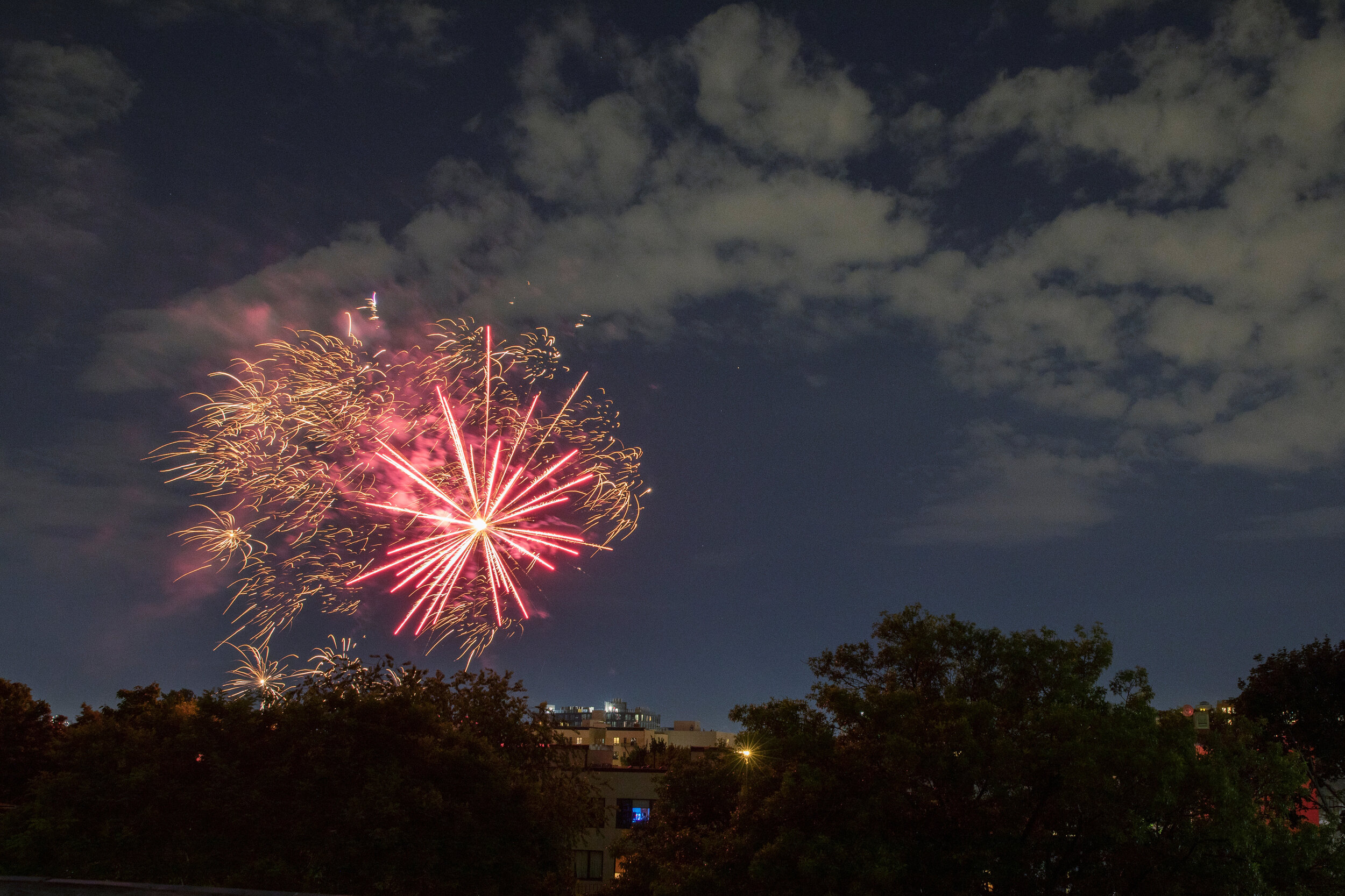Where Are All These Fireworks Coming From?
Independence Day has always carried a grim irony for many Americans - the first time it was celebrated, tens of thousands of Black Americans were enslaved - but if the history of America is one of uprisings in the name of a freedom that America never truly honored, celebrating the Fourth is no different. New Yorkers far from Macy’s corporate display over the East River have long dodged the police to create a better, freer, chaotically democratic Fourth of July. On any Fourth in Brooklyn’s working class neighborhoods - Flatbush and Crown Heights, for example - you can’t walk three blocks without seeing extraordinary fireworks being set off in intersections while cars attempt to weave through the flaming obstacles.
This year, it’s been more chaotic than usual. For the last month, every night has been like the Fourth - from my window, I can see fizzy lights above neighboring buildings all evening, and sleep involves adjusting to the irregular booms of the big fireworks and persistent sizzle of the smaller ones. In fact, there have been 80 times the number of fireworks complaints in the first half of June as there were last year, as New Yorkers emerge from a miserable quarantine.
The fireworks have been so overwhelming that conspiracy theories have spread about their distribution. A widely shared Twitter thread suggested that the fireworks were psychological warfare waged by the government to sow discord and exhaustion in Black and Brown communities. The theories were fed by videos of fireworks near police stations (some people imagined that police might be handing them out) and of firefighters appearing to light them off in Crown Heights. Further investigation by the New York Times shows that it’s more a matter of entrepreneurial New Yorkers crossing the border to stores in Pennsylvania, where selling fireworks is legal, and stocking their trunks for lucrative resale.
But the conspiracy theories reflect a sobering reality – Brooklyn is massively policed, and that policing is notoriously racist. Stop and frisk made a comeback in 2019, with most of the cases in Brooklyn. Plainclothes officers execute violent stings. And the borough has been the site of enormous multiracial demonstrations against police brutality in the wake of the police killings of Breonna Taylor and George Floyd. It’s both easy and correct to believe that there’s a war on Black and Brown people in the borough.
Following the demonstrations, Brooklynites have been embroiled in debates over whether it’s okay to call the police on endless fireworks. I passed a big crowd gathered around a stoop after one of the marches that have become a mainstay of 2020 life in my neighborhood. A young man was speaking to the crowd about local police violence, and explaining why not to call them – even in the one situation that had recently prompted hundreds of New Yorkers to pick up their phones. “I know,” he said, “I hate the fireworks, too.”
Whether you see the fireworks as a middle finger to oppressive authorities, a tool of division, joyous celebration, or some combination of the three depends on where you sit.





